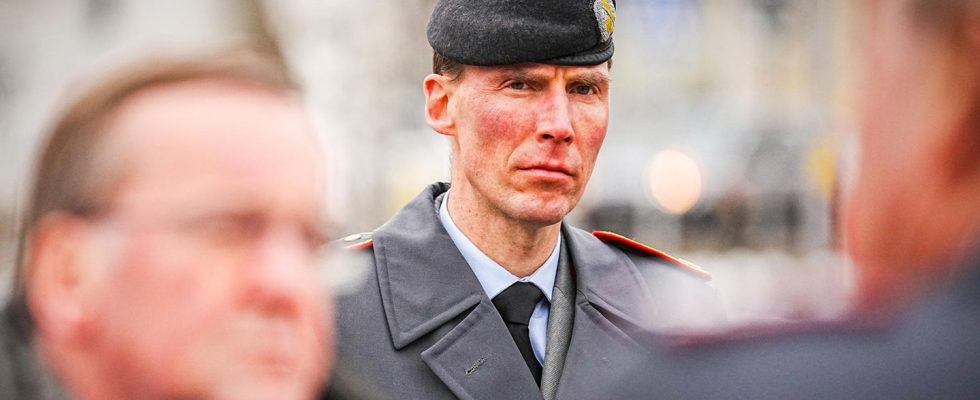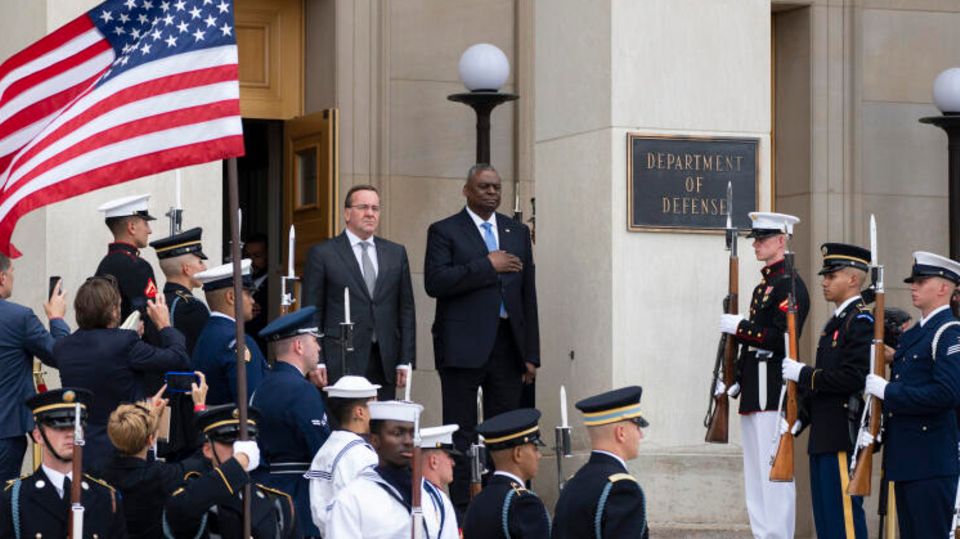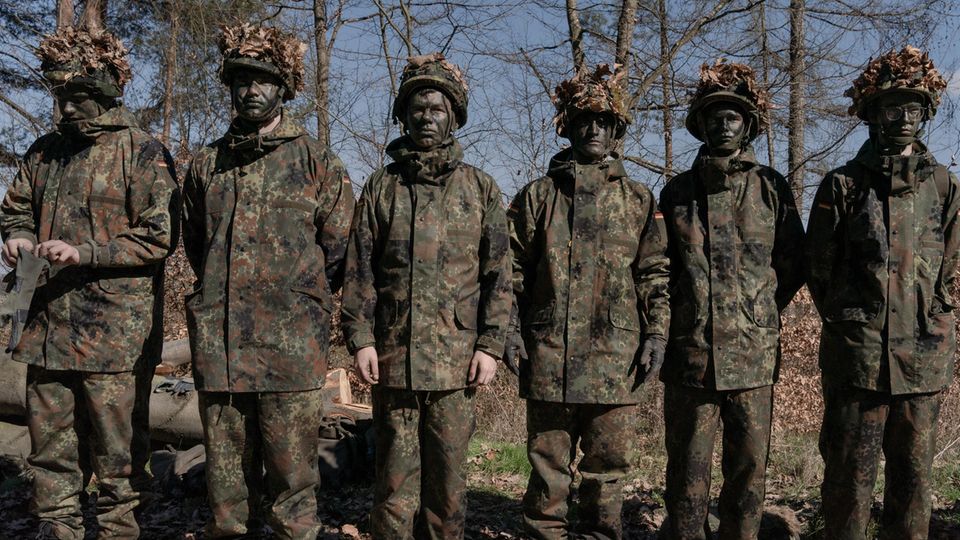“pure turning point”
4,000 soldiers for the eastern flank: The Bundeswehr is planning a large unit in Lithuania
Wants to complete plans for a large association by autumn: Brigadier General Christian Freuding.
© Kay Nietfeld / DPA
The Bundeswehr is facing drastic changes: while a mission in West Africa ends with a bitter aftertaste, plans are under way for a large unit to be stationed in the Baltic States. The eastern NATO partners there fear that something is brewing.
Carsten Hoffmann
Germany is thus complying with a vehemently expressed wish from Lithuania, which is looking uneasily at Russia. The politicians in Vilnius were not convinced by promises that the Bundeswehr soldiers would come quickly in the event of tension and then prepare for combat with weapons stored in the country. The Germans are supposed to live in the country like the Americans and British did in West Germany during the Cold War: kindergartens, schools and houses are to be built – and that in addition to the military infrastructure that is still needed. The Lithuanians have already brought locations into play, including a barracks on the outskirts of the capital Vilnius and in the port city of Klaipeda, the former Memel on the Baltic Sea. From there it is about 50 kilometers to the border of the Russian exclave of Kaliningrad.
Eastern NATO partners take a critical view of the current situation
The eastern NATO partners in the Baltic States – but also Poland – fear that something is brewing in the region. They look at Belarus, which is an ally of Russia, but also at the so-called “Suwalki gap”. NATO uses this term to describe the narrow land corridor that lies between Belarus and Kaliningrad and that leads through Polish and Lithuanian territory. The concern: Russia could cut off the Baltic states from the other NATO countries and thus test the will to defend themselves.
On Wednesday, Russian Defense Minister Sergei Shoigu spoke of a “strengthening of the troop formations of the Russian Federation army on our western borders,” without naming specific areas. On Friday, Lithuania said it would step up its security measures along the 680-kilometer border with Belarus in response to the presence of Russian Wagner mercenaries in the neighboring country. Two out of six border crossings will be closed. “We have more intelligence officers deployed, our institutions are functioning, and there are certainly many more forces from the national defense system and law enforcement agencies. They also carry out exercises together and take other actions,” Prime Minister Ingrida Simonyte said.
The day before, the Polish government had announced that it would station a total of 10,000 soldiers in the border region with Belarus to “deter the aggressor from daring to attack Poland.” But there is also concern that large numbers of migrants are once again crossing the border from Belarus without permission. The fact that there is an election campaign going on in Poland doesn’t exactly contribute to a sober view. The western NATO partners do not see any concrete preparations for military attacks from the east, but share the assessment that deterrence must be increased. Stationed NATO soldiers are the greatest form of commitment.
There are currently around 800 soldiers in Lithuania
The Bundeswehr has been represented in Lithuania since 2017, currently with around 800 German soldiers and as the lead nation of a multinational NATO battle group (eFP battle group) on a rotating basis. This belongs to the Lithuanian Iron Wolf Brigade. It is conceivable that, in return, a Lithuanian battalion will be integrated into the future German brigade. It also has to be decided whether Germany will set up a completely new association for the project.
“We want to go about it completely openly. That can mean moving an existing brigade or setting it up again. We first have to look at what operational demands there are on this brigade in order to be able to decide what it has to look like at all,” said Freuding. The internal structure has yet to be decided. “Whether he now has two armored infantry battalions and one armored battalion or vice versa, or whether he still has an infantry battalion due to geographical requirements, I would leave that open at this point.” It is clear that the association must be able to act independently, i.e. it will also have medical supplies, logistical supplies and IT and cyber support. Freuding says: “This is a pure turning point.”
In June, Defense Minister Boris Pistorius promised the stationing, following on from less concrete assurances from Chancellor Olaf Scholz. Within the military, the SPD politician dropped an unexpected bombshell, and the skeptics immediately spoke up. However: If Pistorius first wanted to clear up all objections, he would probably be left empty-handed until the next federal election, as previous experience shows. In fact, the stationing is also a tour de force with unanswered questions. By the fall, the Lithuanians themselves will have to deliver when it comes to plans such as accommodation.
“Voluntariness is not the fundamental principle of the armed forces”
“Of course there are many models. We’re looking in particular at the American stationing in Germany. We know how socially integrated schools, kindergartens, social institutions and cultural institutions are,” says Freuding. “We don’t have much experience with that, but we’ll work out a good package with the Lithuanians.” There will be soldiers who commute and others will move with their families.
The aim is to discuss every post with the soldiers and to make it attractive “with a wide range of instruments”. But it also applies: “Voluntariness is not the basic principle of the armed forces. We will set up troops there, move them and equip them with the necessary personnel,” says the general. “My impression is that this is a big task that will be exciting for many to be part of.”



